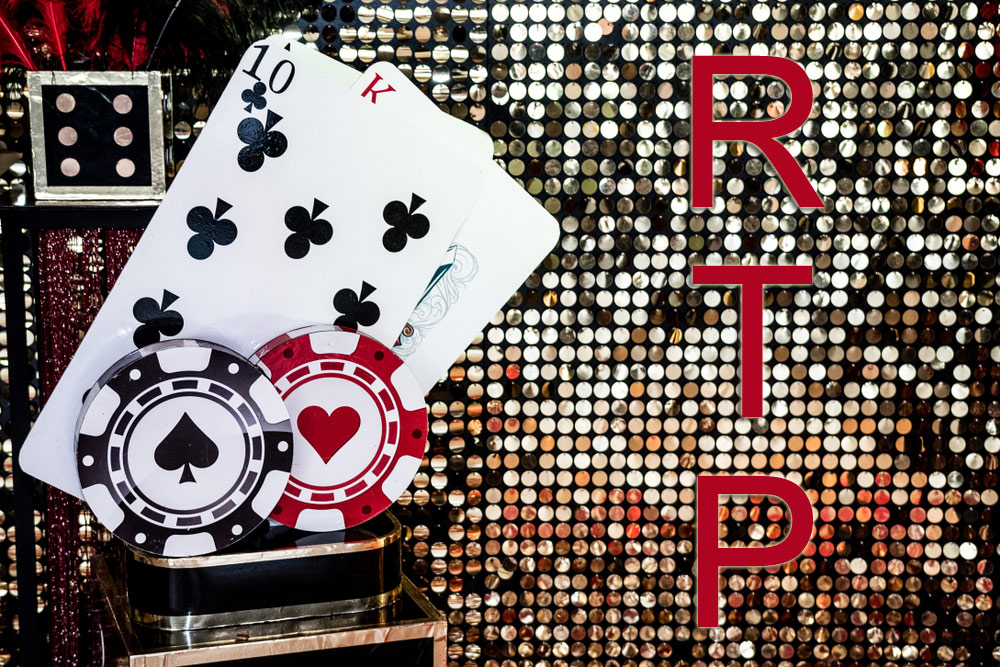The return to player (RTP) percentage is a really important figure for players to consider before they deposit money and start to play a game. In basic terms, the RTP tells players how often they can expect to win when playing at online casinos. The figure shows how much a game pays out over a […]
The return to player (RTP) percentage is a really important figure for players to consider before they deposit money and start to play a game. In basic terms, the RTP tells players how often they can expect to win when playing at online casinos. The figure shows how much a game pays out over a long period of time. The RTP is usually published as a percentage and should be shown in any publicity material for RTP slot games.

How is return to player calculated?
The return to player calculation is extremely complicated because in the actual calculation all possible outcomes of a game are considered and these outcomes can be extremely numerous. To demonstrate how RTP is calculated, therefore, we will consider a simple online casino game. In this game, there are 10 possible outcomes with each one being just as likely to happen as the others. If over a period of 10 games with each bet being £1 you walked away with £9 the RTP would be 90%. This is because for every £10 you play you receive 90% of the back in winnings. In this case, the house or online casino you are playing with has a 10% advantage. This is a really simplified way of looking at return to player calculations and the calculation is based on a much longer period of gameplay than 10 games but it demonstrates the point well.
Why is it useful to know the RTP of a game?
How to calculate RTP is a complicated thing and the longevity of the calculation means that there is never going to be an exact science in estimating how much you can win playing RTP slot games. If this is the case then you might be wondering if there is any point knowing the return to player of your favourite game. Indeed, knowing the RTP won’t help you to predict what is going to happen in short-term gameplay but they do give you a good idea of the long-term and will let you know how much of an advantage the house has and how likely it is that you will get a payout.
Why do different games have different RTPs?
One of the reasons that online casinos offer differing return to player percentages on different games is the volatility levels of the differing games. RTP slot games can be high volatility or low volatility and often the RTP will differ accordingly. Volatility refers to the risk in playing a game, so high volatility means the game will pay out large sums of money less often whereas a low volatility game will pay out smaller sums of money less often. Higher volatility slots often offer a lower RTP, usually around 94%, because they are storing up money ready for the big payout. Low volatility slots usually have a higher RTP. Which level of volatility suits you depends on how you like to play, those who prefer longer games and are more risk-averse might prefer lower volatility whilst those happy to burn through some money and take more risk might prefer a higher volatility. Either way, the RTP can offer you a clue as to the type of game you are playing.
Why is the RTP higher for table games?
If you were to compare the return to player percentages for table games such as Roulette or Blackjack with RTP slot machines you might find that online casinos offer a more competitive return to player value for slots. The difference in these figures is often down to the complexity of the game being played. Slots, for instance, are simple to play and require very little skill. To make up for the fact, therefore, that they can’t earn a profit based on ignorance of the game online casinos offer a poorer house edge. Table games, on the other hand often require some skill from the player, for instance, understanding what cards are likely to be played or the ability to bluff can help in Poker games or the skill of keeping track of cards played in Blackjack can give the player an advantage. To this effect, because not every player will have these skills the casino can often take advantage of this and can make a profit based on players lack of gameplay know-how. This means they can often afford to offer a higher RTP rate.
